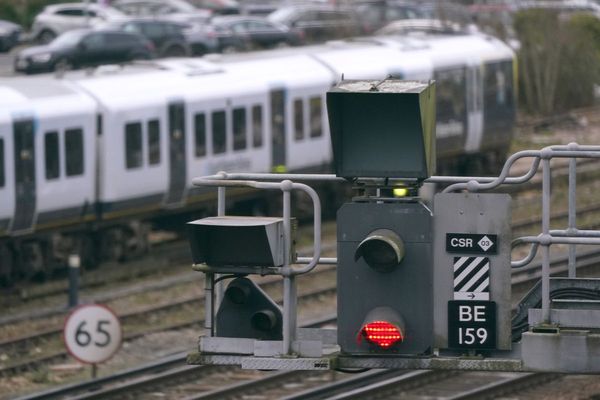
Palestinians are eager to see U.S. President-elect Joe Biden take office in January, not for what he may do but what they hope he will undo. After four years in which outgoing President Donald Trump shut the Palestinian diplomatic mission in Washington, slashed hundreds of millions of dollars in annual aid to refugees, recognized a divided Jerusalem as Israel’s capital, and told Israeli settlers that they deserve a third of the West Bank, expectations are low.
Forget about grand gestures like former President Barack Obama’s 2009 historic speech in Cairo to strike a “new beginning” with the Muslim world, which was followed by years of fruitlessly prodding Israelis and Palestinians to embrace a two-state solution. You won’t see Biden shuttling between Riyadh and Jerusalem as Trump did in 2017 to boast about his unique abilities to engineer an Israeli-Palestinian peace deal.
What Palestinian President Mahmoud Abbas can hope for from the incoming Democratic administration is a will to restore balance. While Trump took his Middle East policy straight from Israeli Prime Minister Benjamin Netanyahu’s right-wing playbook, he mostly ignored the 85-year-old Palestinian leader, who became persona non grata at the White House. Abbas recognizes that trying to broker peace between Israelis and Palestinians is not an immediate priority for Biden, who will focus in his first year on U.S. domestic issues—above all, how to emerge from the COVID-19 pandemic and recharge the economy.
In foreign policy, Biden’s intention to reenter the Iran nuclear deal—formally known as the Joint Comprehensive Plan of Action—for stopping Iran from producing nuclear weapons, which Trump exited, will take precedence, along with addressing threats from China and Russia.
Prospects for making progress on the Israeli-Palestinian peace front are considered remote to nonexistent in 2021, especially since the lead characters haven’t changed since Obama left office. Netanyahu and Abbas detest each other, and the Trump administration’s uninhibited swing in Israel’s favor only deepened their mutual distrust. “I don’t think Palestinians are going to have a problem with the new U.S. administration as much as they’re going to have a problem with Netanyahu,” said Mkhaimar Abusada, a political scientist at Gaza’s Al-Azhar University.
But the ground has been shifting in the Middle East, creating new options for breaking what looks like a hardened stalemate. When the time comes to push further and actually try to renew Israeli-Palestinian peace talks, Biden may be able to capitalize on the new willingness of Arab countries to engage with Israel, as demonstrated by the Trump-brokered Abraham Accords that have normalized the country’s relations with the United Arab Emirates and Bahrain. Though Abbas is deeply wary of the UAE, which harbors his bitter Palestinian rival, Mohammed Dahlan, he may be more willing to respond to involvement by Saudi Arabia, which has facilitated Gulf-Israel rapprochement and has its own growing ties with Israel but has resisted signing its own normalization pact.
The list of actions that Palestinians want Biden to undo is led by Trump’s cutoff in U.S. money going to the United Nations Relief and Works Agency, which takes care of some 1.4 million poverty-stricken Palestinians living in refugee camps in the West Bank and Gaza Strip. Their plight has been exacerbated by the impact of COVID-19 on the Palestinian economy, which is projected to have contracted 8 percent in 2020.
Also up for reversal is the Trump administration policy that settlements are “not inconsistent with international law” and goods produced in them can be labeled as being made in Israel. The European Union requires that wine, dates, and other exports from settlements indicate that they were made in occupied territory by listing their origin as the West Bank or Golan Heights.
Besides asking that the shuttered PLO office in Washington be allowed to operate and fly its flag again, Abbas also wants Biden to reopen the U.S. Consulate in East Jerusalem, which historically kept Palestinian affairs separate from the U.S. Embassy, whose priority was dealing with Israel. On the other hand, Palestinians recognize that Biden will probably not reverse the decision Trump took in 2018 to recognize Jerusalem as Israel’s capital and transfer the U.S. Embassy there from Tel Aviv, a move long authorized by Congress.
While Palestinians are trying to keep their expectations low, Abbas reacted quickly to Biden’s election victory in November by sending signals he was ready to engage again with Israel. The Palestinian leader restored coordination between his West Bank security forces and Israel’s military administration, which had been suspended since May. He also renewed the arrangement by which Israel collects import and export duties at its ports on behalf of the Palestinian Authority.
In another sign that he wants to move forward, Abbas also tempered his objections to the series of normalization agreements between Israel and Arab states. Having accused the UAE of backstabbing the Palestinians when that country’s peace deal with Israel was announced in August, the Palestinian leader issued no such public objection when Morocco agreed to a similar pact in December.
Netanyahu, who has a personal relationship with Biden stretching back more than 30 years, is also shifting gears to prepare for the change in Washington and making low-key efforts to reach out to Democrats. At the same time, the Israeli leader will inevitably clash with the new administration as he tries to retain the support of West Bank settlers in national elections likely to take place in March. Netanyahu has also warned against Washington restoring the Iran nuclear agreement, reviving memories of his public alignment with U.S. Republicans and his protocol-breaching denunciation of Obama’s support for the pact before a joint session of the U.S. Congress in 2015.
For now, however, even the Biden team has very low expectations for breaking the Israeli-Palestinian impasse. A peek into the incoming administration’s developing policy is available in a detailed report—clearly counseling a go-slow approach—that was published by the Center for a New American Security on Dec. 16. The co-authors include former Obama administration officials Ilan Goldenberg and Tamara Cofman Wittes, along with Michael Koplow from the left-leaning Israel Policy Forum. “Donald Trump’s administration has fundamentally undercut the U.S. role in Israeli-Palestinian peacemaking by taking a one-sided approach,” the authors write in the 69-page report. “But U.S. policy in the pre-Trump era, under Presidents Bill Clinton, George W. Bush, and Barack Obama, also failed to produce lasting peace, and a simple return to those policies will not succeed.”
As Biden assembles his Middle East team, he will try to learn from errors of the past. No one stands for those mistakes more than John Kerry, the former U.S. secretary of state whom Biden has designated as his climate envoy. Kerry’s approach has been lampooned through circulation of a 2016 video clip where Kerry insists that “there will be no separate peace between Israel and the Arab world” before an agreement is reached with the Palestinians. “Everybody needs to understand that,” Kerry said with an air of authority that makes him look especially clueless now that four additional Arab states have made peace with Israel. The episode underlines the Biden team’s desire to avoid going back to old routines. “It would be better not to fail all over again,” said David Pollock, a fellow at the Washington Institute for Near East Policy and former State Department official who tracks Palestinian public opinion.
But for all the skepticism, there are new ideas for building on the changes happening in the Middle East in ways that benefit the Palestinians. Among the opportunities explored in the Trump era that might have special appeal for Biden is a plan to knit the region together by rail. Famous for commuting daily on Amtrak between his home in Wilmington, Delaware, and his Senate office in Washington, Biden could probably get behind the plan to connect Israel’s Mediterranean port city of Haifa with the Saudi harbor of Dammam on the Persian Gulf. The 1,100-mile route would traverse Jordan and include a stop in the Galilee serving Palestinians in the West Bank.
Biden may not be flying anytime soon between Riyadh and Jerusalem, but what a tableau it would make to see the U.S. president riding alongside Netanyahu and Abbas on a glorious railroad trip through the new Middle East.







